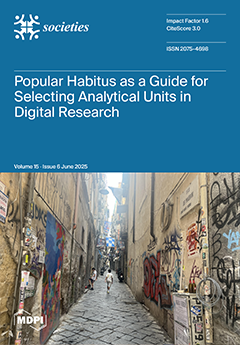In Chile, lesbian-parent families have faced legal and social advancements as well as challenges, generating new dynamics through assisted reproduction. The reproductive justice framework allows for an analysis of the inequities and injustices experienced by LGBTIQA+ people in relation to their reproductive rights.
[...] Read more.
In Chile, lesbian-parent families have faced legal and social advancements as well as challenges, generating new dynamics through assisted reproduction. The reproductive justice framework allows for an analysis of the inequities and injustices experienced by LGBTIQA+ people in relation to their reproductive rights.
Objective: To analyze the narratives of lesbian-parent families who have accessed parenthood through assisted reproduction techniques within the Chilean healthcare system, identifying barriers and facilitators in the process, as well as possible instances of discrimination.
Methodology: This research adopted a qualitative approach with a descriptive scope and was based on a constructivist paradigm, utilizing a narrative design and analysis. Four lesbian-parent families participated, selected through purposive or convenience sampling.
Results: The findings revealed that the main barriers were related to health insurance coverage and social and geographical factors. Among the key facilitators were support networks, educational level, and healthcare professionals’ guidance.
Discussion: The study highlighted the presence of inequalities affecting the exercise of parenthood and the right to form a family, shaped by institutional and social barriers from a reproductive justice framework.
Conclusions: The study underscores the need to advance inclusive public policies and systemic changes that recognize and protect family diversity in Chile. Furthermore, it highlights the role of narratives as a tool to make visible and challenge the inequalities surrounding lesbian parenthood.
Full article





